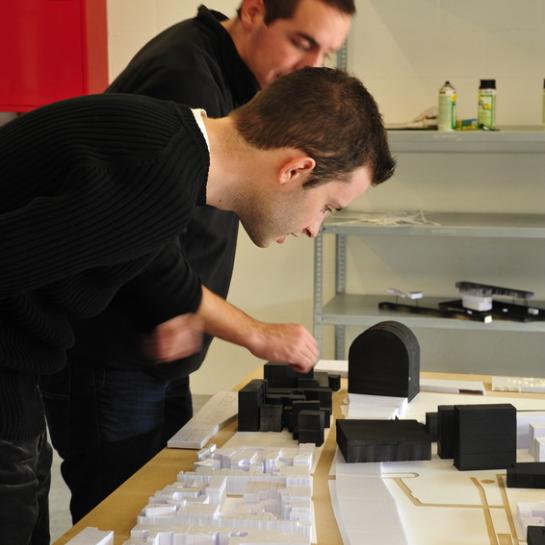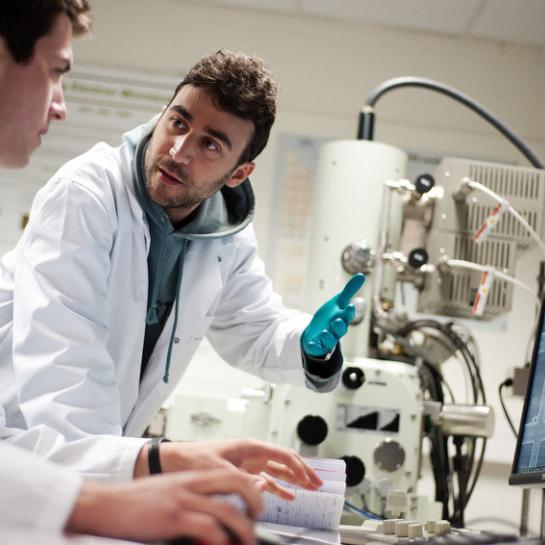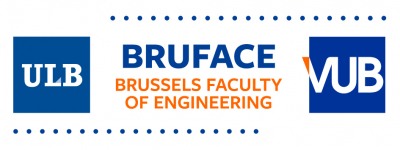Application procedure for non-EEA students
Do you have a non-EEA nationality? Please start your application here.
Application procedure for EEA students
Do you have an EEA nationality? Please start your application following the links below:
Completing an application takes approximately one hour.
- Msc Architectural Engineering (apply here)
- Msc Chemical and Materials Engineering (apply here)
- Msc Civil Engineering (apply here)
- Msc Electrical Engineering (apply here)
- Msc Electromechanical Engineering (apply here)
Application procedure for Belgian students
Do you have a bachelor's degree in engineering science from a Belgian univeristy?
For universities from the Flemish community, please apply directly at www.vub.be
For universities from the French-speaking community, please send a copy of your registration certificate for the final year of your bachelor's degree, or a certificate of successful completion of this course, to daf.epb@ulb.be. You will then be informed of the rest of the procedure.
Application deadlines
For EEA students: 31 July 2025
For non-EEA students: 31 March 2025
Please note late applications will not be accepted.
Intake academic year of 2025-2026: applications open 15 November 2024
Next intake: academic year of 2025-2026 (start of classes: mid-September 2025)
What is an EEA- student?
EEA is short for the European Economic Area, which unites the EU Member States and the three EEA EFTA States. Countries include: Austria, Belgium, Bulgaria, Croatia, Cyprus, Czech Republic, Denmark, Estonia, Finland, France, Germany, Greece, Hungary, Ireland, Italy, Latvia, Lithuania, Luxembourg, Malta, The Netherlands, Poland, Portugal, Romania, Slovakia, Slovenia, Spain, Sweden and Iceland, Liechtenstein, Norway.
Join our online info sessions
(Dec 2024-May 2025)
In this one hour info session, we will briefly discuss tuition fees, scholarships, admission requirements, the application process and important deadlines. The session will end with a Q&A session. Above all, we believe it is a great way to get to know us and we look forward to welcoming you! More info
Do you still have questions?
Don't hestitate to check out our most Frequently Asked Questions, or simply send us an email
How does it work?
If you're interested in applying for our programmes, you first need to hand in an application. Depending on whether you meet the key requirements, you may be invited to an interview with a professor to assess your academic knowledge and motivation to study at VUB/ULB.
How do we assess your application?
(1) First, we check whether you have handed in a complete application and have paid the application fee (some exceptions apply).
(2) Second, we do a thorough check whether you meet all academic requirements of the programme. If you do not meet these, you will be notified by email that we unfortunately cannot accept your application. If you meet these criteria, your application will be sent to one of our professors for a thorough screening of your academic records.
(3) If our professors deem your profile to be a good fit, and you meet all requirements, you will be invited to a one-on-one interview. In this interview, you may be asked questions about your motivation to study or to come to Brussels, but you may also be asked technical questions to test your knowledge of for instance mathematics, and other relevant topics in engineering.
(4) If you pass the interview stage, you will be invited to continue your application. Some extra documents may be asked, such as proof of English and you will be asked to contact your university to verify your diploma.
Your documents will receive a final check before your application can be approved. If any documents are missing at this stage, you will be notified to give you a chance to upload them.
Finally, if you have submitted all documents, you will be sent an electronic conditional letter of acceptance. With this letter, non-EEA students can request a visa at the embassy. Please note that to start this process in time, we recommend at least four months before the start of the academic year in September. Once you have received your visa, you can travel to Belgium to take part in the classes.
If you are a non EEA-student, we strongly recommend to enroll at VUB, if you are an EEA-student, we strongly recommend to enroll at ULB. However, all students receive the same education and diploma.
General criteria
Admission to the Bruface Masters requires graduation, either in an Engineering Sciences Bachelor Program issued by a recognized Belgian University, either in a similar study program from a recognized institution (minimum 3 years full-time study or 180 ECTS credits).
Msc specific criteria
Please carefully read below what the specific criteria are for each Msc Bruface degree
Architectural Engineering:
- I have or will soon have a Bachelor's degree in Architecture and Engineering Sciences of at least three years, or consisting of at least 180 ECTS credits or equivalent (such as 130 US credits or semester contact hours)
- I have an overall degree above average, which in the US grading means level B+ or a GPA of minimum 3.33 out of 4. For conversion to the US grading system please consult this page.
- I have obtained a score above average for the mathematics courses, which means a score of minimum 3.2 out of 4, 15 out of 20 or equivalent B+ level.
- I have obtained a minimum of 30 ECTS or equivalent in architectural design studio or equivalent.
- I have obtained a minimum of 10 ECTS or equivalent in courses related to the history and theory of architecture.
- I am or will be able to prove my knowledge of the English language.
Civil Engineering:
- I have or will soon have a Bachelor's degree in Engineering Sciences of at least three years, or consisting of at least 180 ECTS credits or equivalent (such as 130 US credits or semester contact hours)
- I have an overall degree above average, which in the US grading means level B+ or a GPA of minimum 3.33 out of 4. For conversion to the US grading system please consult this page.
- I have obtained a score above average for the mathematics courses, which means a score of minimum 3.2 out of 4, 15 out of 20 or equivalent B+ level.
- I am or will be able to prove my knowledge of the English language.
Electrical Engineering:
- I have or will soon have a Bachelor's degree in Engineering Sciences of at least three years, or consisting of at least 180 ECTS credits or equivalent (such as 130 US credits or semester contact hours)
- I have an overall degree above average, which in the US grading means level B or a GPA of minimum 3 out of 4. For conversion to the US grading system please consult this page.
- I have obtained a score above average for the mathematics courses, which means a score of minimum 3 out of 4, or equivalent B level.
- I am or will be able to prove my knowledge of the English language.
Chemical and materials Engineering:
- I have or will soon have a Bachelor's degree in Engineering Sciences of at least three years, or consisting of at least 180 ECTS credits or equivalent (such as 130 US credits or semester contact hours)
- I have an overall degree above average, which in the US grading means level B or a GPA of minimum 3 out of 4. For conversion to the US grading system please consult this page.
- I have obtained a score above average for the mathematics courses, which means a score of minimum 3 out of 4, or equivalent B level.
- I have obtained a score above average for the chemistry courses (general physical and organic chemistry), which means a score of minimum 3 out of 4, or equivalent B level.
- I am or will be able to prove my knowledge of the English language.
Electromechanical Engineering:
- I have or will soon have a Bachelor's degree in Engineering Sciences of at least three years, or consisting of at least 180 ECTS credits or equivalent (such as 130 US credits or semester contact hours)
- I have an overall degree above average, which in the US grading means level B or a GPA of minimum 3 out of 4. For conversion to the US grading system please consult this page.
- I have obtained a score above average for the mathematics courses, which means a score of minimum 3 out of 4, or equivalent B level.
- I am or will be able to prove my knowledge of the English language.



How to prove your English proficiency
Prospective students can provide proof of sufficient knowledge of English as language of instruction by meeting one of the following criteria. Please find here an overview of the criteria.
What happens next?
After you have submitted your application, a team of evaluators will check your documents and academic background. If you meet all criteria, you will be invited to an interview with a professor to verify you have the right academic knowledge. When succesful, you will be invited to complete the next steps in the registration process. Once completed, you will receive a conditional letter of acceptance and an invitation to enroll.
